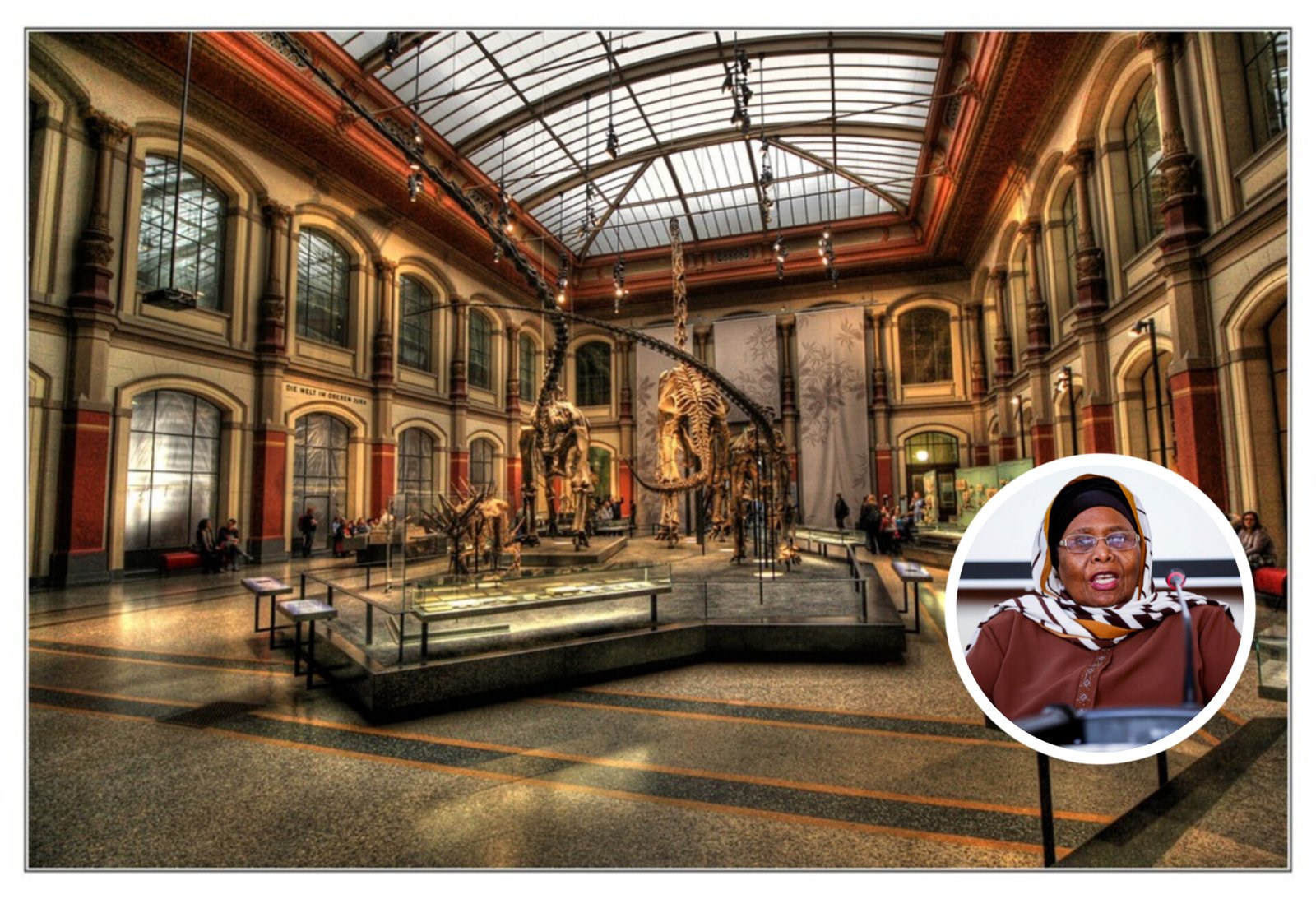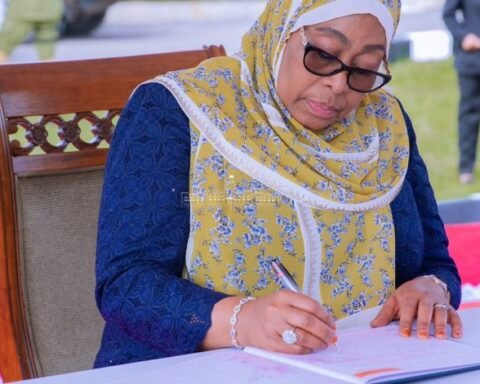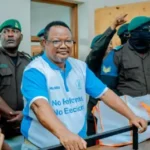LINDI / BERLIN — More than a hundred years ago, German scientists dug deep into the red earth of southern Tanzania’s Lindi region and unearthed one of the world’s most complete dinosaur fossils — the Brachiosaurus brancai, later renamed Giraffatitan. It became the crown jewel of Berlin’s Museum für Naturkunde, drawing millions of visitors and symbolizing German scientific glory.

But for the people of Tendaguru, where the fossils were excavated between 1909 and 1913, the discovery brought no prosperity. Instead, it left behind a legacy of exploitation, forced labor, and unfulfilled promises — a history that has yet to be acknowledged or compensated.
“The Tendaguru fossils are still earning Germany money, while our people in Lindi struggle to access water, schools, and hospitals,” says Hon. Riziki Lulinda, Goodwill Ambassador for the Tendaguru Heritage Campaign. “If Holocaust and Namibian genocide survivors have received compensation, why not the descendants of those who were exploited here?”
Her question cuts to the heart of an uncomfortable truth: Europe has selectively atoned for its historical crimes, but Africa’s colonial wounds remain largely ignored.
Earlier this year, the Conference on Jewish Material Claims Against Germany, which handles reparations for Holocaust victims, announced that Berlin will allocate another $1.4 billion to survivors worldwide for 2025. Of that, nearly $900 million will fund home care and social services for aging victims.
The decision builds on a decades-long framework of accountability — one that has seen Germany pay out tens of billions of dollars to Holocaust survivors since the 1950s. Similar reparations have been made to Namibia, following Berlin’s formal acknowledgment in 2021 that German colonial troops committed genocide against the Herero and Nama peoples between 1904 and 1908.
Yet, there has been no such recognition for the thousands of Tanzanians who toiled and suffered under the German colonial regime, or for the communities that lost their natural and cultural heritage to European museums.
The Tendaguru Heritage Campaign, spearheaded by Lulinda and supported by local activists, scholars, and youth organizations, seeks to change that. The movement calls for an official acknowledgment of the exploitation surrounding the Tendaguru excavations and demands dialogue on restitution — whether through compensation, community development projects, or the return of key fossils to Tanzania.
ALSO READ: Tanzania Strengthens Fight Against Mineral Smuggling
During a recent interview, Lulinda emphasized that the campaign is not merely about money or artifacts, but about dignity and justice.
“When Germany pays billions to Holocaust survivors and supports the rebuilding of Ukraine, but closes cultural projects in Africa, what message does that send?” she asked. “We are not asking for pity — we are asking for fairness.”
Her remarks come amid reports that Germany’s GIZ and GAFTAC programs, which once supported heritage and governance projects in Tanzania, are being scaled down as Berlin reallocates funds toward European crises, including the war in Ukraine.

The Economic Irony
At Berlin’s Museum für Naturkunde, the Tendaguru dinosaur remains one of the top tourist attractions. Visitors pay entrance fees that help sustain the museum’s operations, exhibitions, and research. Yet none of those benefits reach the village where the fossil was found — a community still grappling with poverty, inadequate infrastructure, and limited access to education.
Local leaders in Lindi say they feel abandoned by both Berlin and Dodoma. Some emerging political candidates have pledged to raise the Tendaguru issue in parliament if elected in 2025.
“Tendaguru is not just a fossil site — it’s a symbol of our stolen future,” said one aspiring MP from the region. “If others can receive reparations for historical wrongs, then Tanzanians deserve the same respect.”
The question of restitution is gaining urgency as European nations confront their colonial pasts. Museums in France, Belgium, and the UK have begun returning looted African art and human remains, often after years of public pressure. Germany, meanwhile, has positioned itself as a model of historical accountability — but primarily for crimes committed in Europe.
For activists in Tanzania, that double standard is becoming harder to ignore.
“Justice cannot be selective,” says Lulinda. “If Germany can find billions for Holocaust survivors every year, it can certainly invest a fraction of that to uplift the very communities that gave the world Tendaguru.”
Across Europe, nations are grappling with how to address colonial-era theft and violence. France, Belgium, and the UK have begun returning African artifacts and human remains. Germany, often praised for its Holocaust accountability, now faces growing scrutiny over its selective approach to justice.
“Justice cannot be selective,” says Lulinda. “If Germany can find billions for Holocaust survivors every year, it can certainly invest a fraction of that to uplift the communities that gave the world Tendaguru.”








This is a powerful indictment of moral inconsistency in Europe’s reckoning with history, urging that true accountability must extend beyond Europe’s borders to the African communities whose heritage and labor built its museums and wealth.